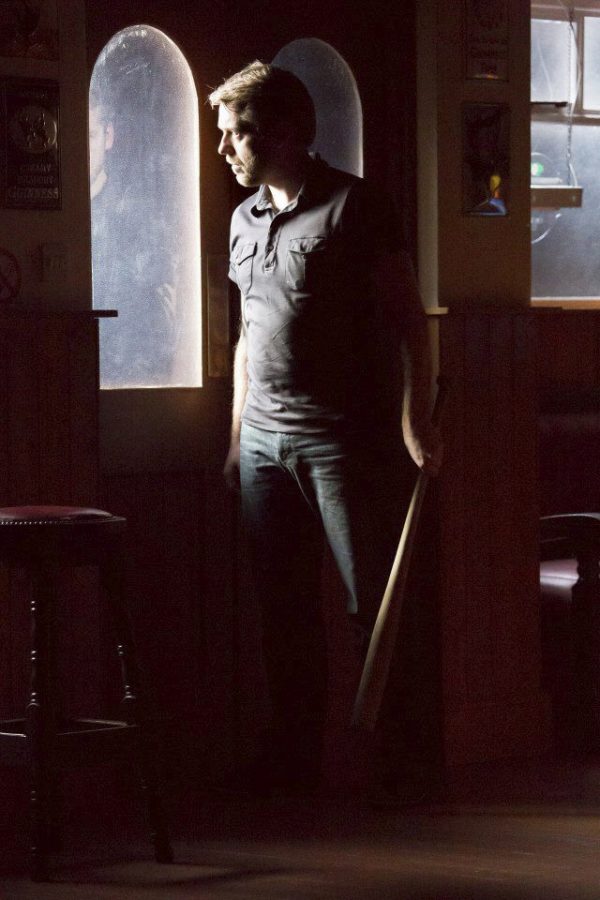‘Quietly’ Speaks Volumes About Terror
Owen McCafferty’s “Quietly” has recently relocated from Dublin’s Abbey Theatre to New York’s Irish Repertory Theatre due to tremendous success, and will be running until September 25.
September 6, 2016
Though there is no immediate relief from the loss of a loved one, the guilt of an adolescent mistake or the sting of a reopened 30-year-old wound, time can offer a chance at healing. These emotions came to a forefront in Owen McCafferty’s “Quietly,” playing at the Irish Repertory Theatre. After much success at Dublin’s Abbey Theatre, the production has relocated to the New York stage as part of the 2016 Origins First Irish Theatre Festival.
At a pub in Belfast, two enemies struggle to find common ground years after a life-altering tragedy. The Troubles in Northern Ireland was the violent conflict between the predominantly Catholic Nationalists and the largely Protestant Unionists. The bloody guerrilla war was mostly about the divide on Northern Ireland’s national status — whether to remain part of the United Kingdom or to join the rest of Ireland. 36 years later, two men discover that not much has changed, official peace or not.
The play stars Patrick O’Kane as Jimmy, the bitter atheist whose bright future was stunted at age 16 when his father was killed in the political bombing of a small town bar — the very same bar where he now sits. Jimmy’s counterpart is Ian (Declan Conlon), the burdened man who at only 16 years old was responsible for throwing the bomb. Both O’Kane and Conlon give noteworthy performances. The former presents Jimmy with a sense of outward cynicism and anger, while allowing the audience to glimpse at his internalized grief. The latter manages to earn sympathy for his character, capturing an emotion that is best described in Ian’s own words — “haunted.” Comic relief comes in the form of a Polish bartender, played by Robert Zawadzki, who, much like the audience, is unsure how to handle the tension in the room.
Director Jimmy Fay shows skill in his use of silence as a means to create tension. The use of open blocking allows both men to keep their distance. However, as the play progresses, this lack of movement grows stale. The lighting is reminiscent of an old house that has since settled, yellow and nostalgic. The two visible walls of the pub make the audience feel as if they are onlookers, witnessing this confrontation from across the bar.
McCafferty’s writing establishes a clear tone for the play, one that is clever, light but meaningful. The emotional depth reaches the audience in waves. An unrelated anecdote is followed by a pointed remark or sudden outburst that crashes over us, bringing us back to the underlying tragedy. It feels as if one has been kicked in the heart. “Quietly” is particularly relevant to today’s world in terms of the message it sends about political violence. The play forces viewers to question accountability as an impressionable teenager in search of an identity becomes radicalized by hand-me-down politics. Nothing can erase what has happened, but by facing the past, these men are able to think about the future. As Jimmy says, “We met, we understand each other, that’s enough.”
“Quietly” is running at the Irish Repertory Theatre, 132 W 22nd St, New York, NY 10011, as part of the Origins First Irish Theatre Festival until Sept. 25.
A version of this piece appeared in the Sept. 9 print edition. Email Alexandra Pierson at [email protected].

























































































































































